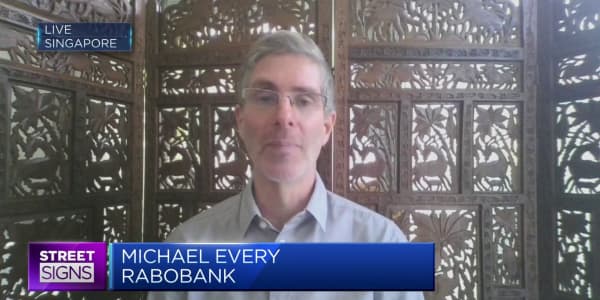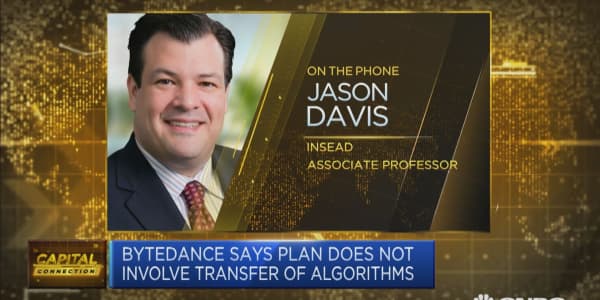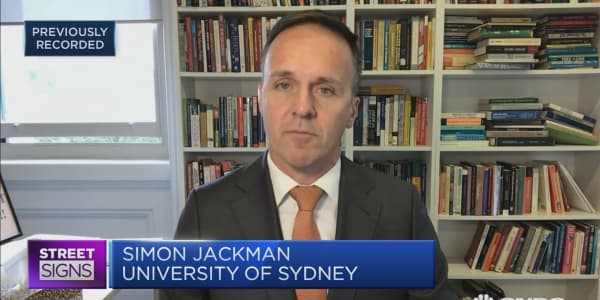President-elect Donald Trump and Republican lawmakers want to expand access to health savings accounts. If that happens, people who use these tax-advantaged plans to pay for health costs as well as investors who treat HSAs as another retirement option could benefit.
Trump has proposed making it easier to pass on HSAs to heirs while House Republicans want a nearly-twofold increase in contribution limits.
"We feel the election outcome certainly seems to lean more favorably toward HSAs, however, it may take time for that to play out," said Jon Robb, senior vice president of research and technology at HSA consulting firm Devenir.
Americans had opened 18.2 million HSAs as of June 30, up 25 percent from a year earlier, according to Devenir. Assets had grown to an estimated $34.7 billion by June, up 22 percent year over year. (See chart below.)
HSAs, introduced in 2003, offer you triple tax advantages.
First, contributions to the account are tax-deductible. Second, those contributions can be invested and grow tax-free. Third, withdrawals aren't taxed as long as you use them for qualified medical expenses.
If you use an HSA to pay for unqualified medical expenses, the tax penalty is 20 percent, unless you are 65 or older, when you can take money out for whatever you want, but the withdrawals will still be subject to regular income taxes.
A drawback of HSAs is that they are paired with a high-deductible health plan.
Such a plan means you'll have to pay a deductible of at least $1,300 for individual coverage and $2,600 for families. The maximum annual out-of-pocket costs for these plans are $6,550 for individuals and $13,100 for families.
In 2017, you (and your employer) can contribute up to $3,400 to an HSA for individuals and $6,750 for families. Account holders age 55 and older can contribute an extra $1,000.
HSA proposals on the table
The Trump administration and Congress would have to hammer out details next year before any changes to HSAs could be made.
The president-elect has proposed HSAs "would become part of the estate of the individual and could be passed on to heirs without fear of any death penalty." Currently, there is no tax penalty for HSAs inherited from a spouse, but those inherited from someone other than a spouse are included in an heir's income.
House Speaker Paul Ryan and fellow Republicans want to increase the HSA contribution limits to the maximum out-of-pocket limits for high-deductible health plans. So if those rules were in effect next year, the individual HSA limit would rise to $6,550 from $3,400 and the family contribution limit would grow to $13,100 from $6,750.
House Republicans also want to allow spouses to make catch-up contributions to the same HSA account and permit qualified medical expenses incurred before HSA-qualified coverage begins to be reimbursed from an HSA as long as the account is established within 60 days.
HSAs can be a bipartisan force that drives better outcomes for all.Michael Trillisenior consultant at Aite Group
Another way the Trump administration and Congress could juice the adoption of HSAs would be by repealing the so-called Cadillac tax.
The tax is a key part of the Affordable Care Act, levying a 40 percent excise tax on high-cost health plans. The tax is scheduled to go into effect 2020. Last year, a divided Congress pushed back the start of the tax by two years.
"The employer Cadillac tax could be abolished immediately and will propel HSAs," said Michael Trilli, senior consultant at financial services consulting firm Aite Group. "HSAs can be a bipartisan force that drives better outcomes for all."
However, Trilli worries that while HSAs have been popular as employee benefits, the accounts have struggled to gain traction among people who are not offered them in the workplace. He sees government subsidies, similar to those provided by employers, as a way get more consumers to start contributing their own funds to HSAs and an area of potential bipartisan compromise.
Nearly half of employers may offer a high-deductible health plan within two years.William Ziebellexecutive vice president at insurance brokerage Arthur J. Gallagher & Co.
Regardless of what a Trump administration or Congress does with HSAs, you will probably hear more about them at your workplace.
"Nearly half of employers may offer a high-deductible health plan within two years," said William Ziebell, executive vice president at insurance brokerage Arthur J. Gallagher & Co.
His prediction is based on a survey Gallagher did of 3,107 U.S. employers in March. The survey found that about 31 percent of employers offer an HSA-compatible health plan now and 15 percent said they are likely to adopt those health plans by 2018.
How to pick an HSA
Unlike the flexible spending accounts, you don't have to "use it or lose it" with an HSA.
In fact, more than three-quarters of HSA account holders withdrew less than they contributed last year, and 24 percent didn't touch any money from their accounts, according to a Fidelity Investments analysis of the more than 500,000 accounts it administers.
Your employer may direct you to sign up with their preferred HSA provider, but if you are enrolled in a qualified high-deductible health plan, you can choose whatever provider you want. However, if employers only offer matching HSA contributions to their preferred provider, it makes sense to stick with them.
HSAs can travel with you if you change jobs or insurers. Just like with any retirement account, fees and investment options matter.
Use this HSASearch to comparison-shop for more than 320 providers.
"Whenever feasible, we recommend that clients leave their HSAs alone to grow and to not use the funds," said Wade Chessman, a certified financial planner and president of Chessman Wealth Strategies in Dallas. "It's really the perfect investment ... pretax in and tax-free out."





